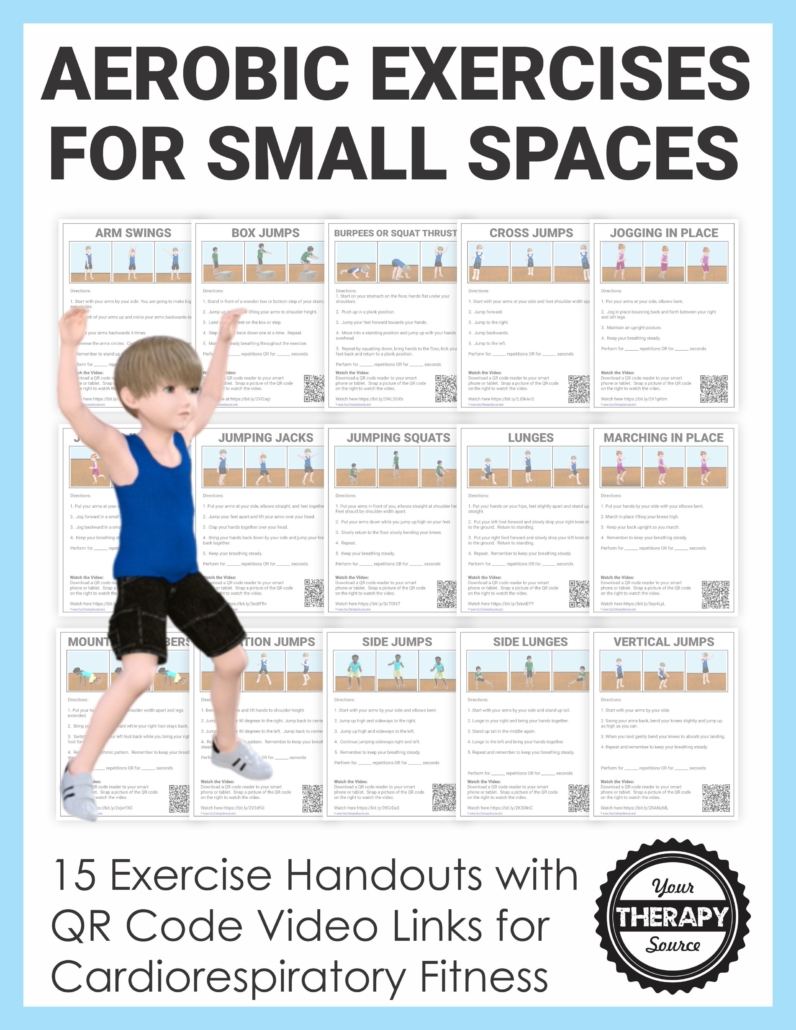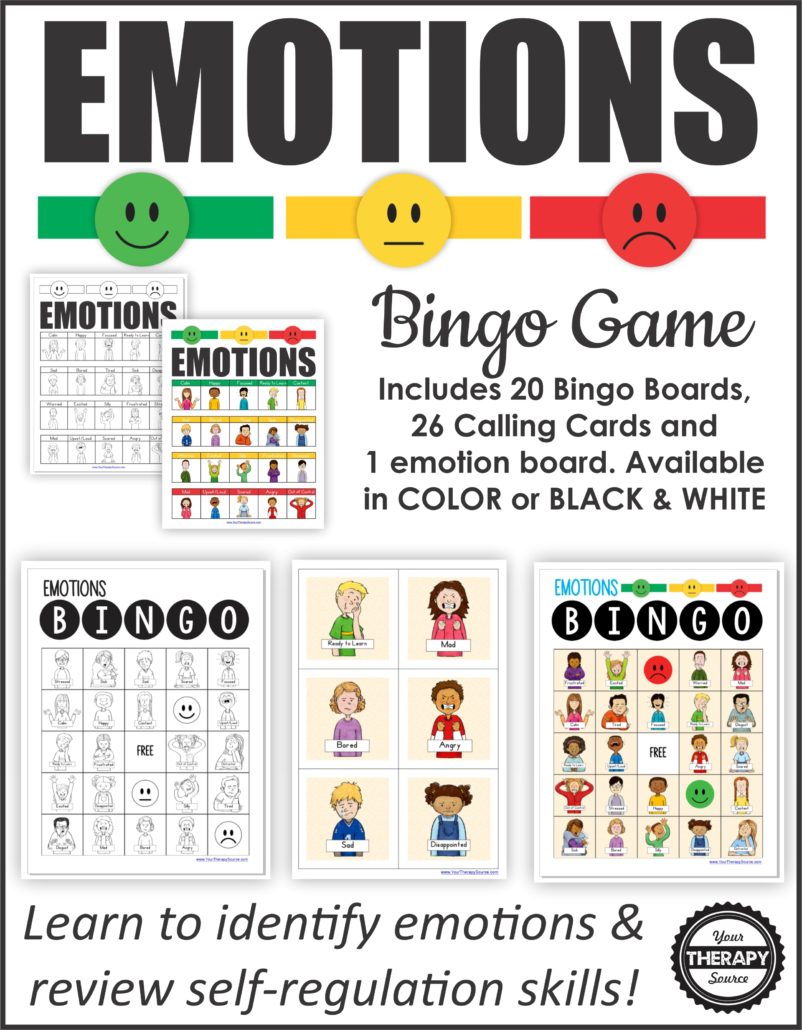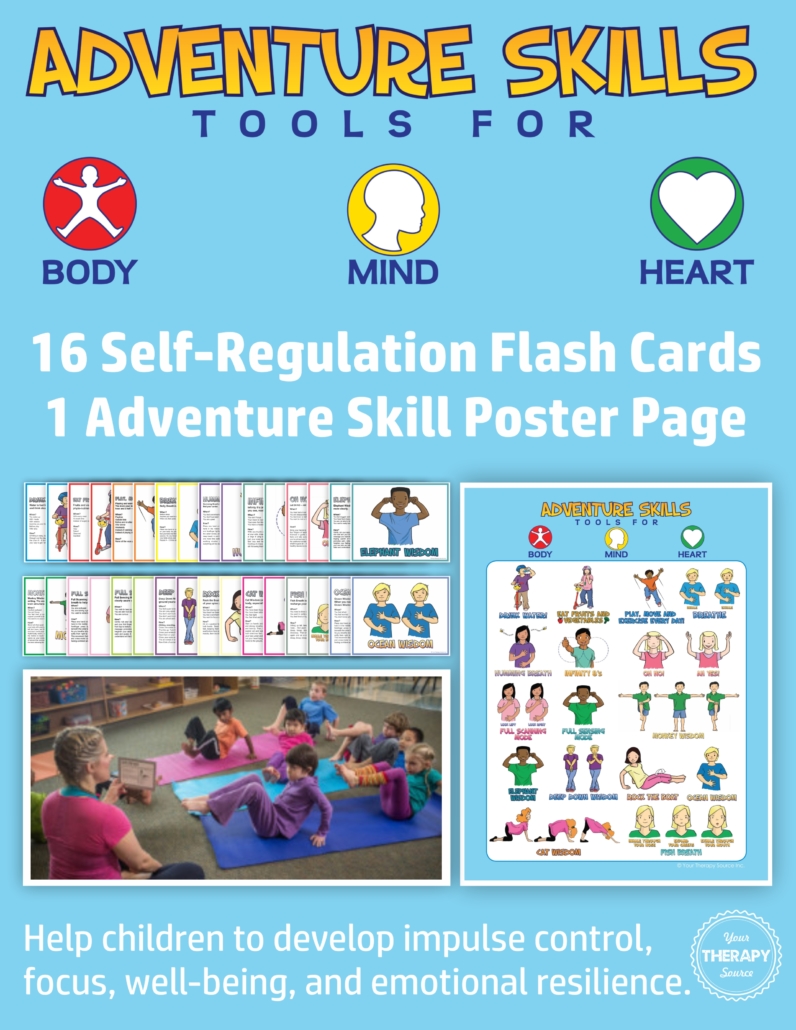Mind Body Connection in Children

Do you consider the mind body connection in children when teaching them new skills? Let’s stop for a moment and think about our own mind body connection. For example, when you have a headache and your forehead is throbbing are you able to focus on your work? Or perhaps, you feel exhausted after staying up all night with a child or worry and you do not feel productive at work? Maybe after sitting at your desk for 3 hours straight, your mind starts to wander. There are so many examples we could list where the state of our body effects the state of our mind and our ability to think.
Now think about your students or your children. Their brains have to be on all day long taking in new information. Often time their bodies may not be able to maintain a “just right state” to have their brains at an optimal level of learning.
A Closer Look at The Mind Body Connection in Children
The mind body connection helps children to develop critical self regulation skills which helps them be ready to learn.
Physical coordination precedes and lays the foundation for cognitive coordination.
If you want to develop the mind, you must develop the body. That means multiple sessions daily of movement, play, and exercise.
Regardless of your child’s challenges or strengths, if s/he is difficult, stressed, crabby, withdrawn, anxious, etc., s/he probably needs more physical play or just plain free time to explore.
Fun movement is the biologically built-in developer of body-mind-feelings awareness and management.
Research indicates that regular participation in physical activity may improve academic performance. Schools that have added physical activity into their curriculum showed a 6% increase in student’s standardized test scores when compared to peers who had inactive lessons (Donnelly, 2011).
One comprehensive research review included 59 studies, indicated a significant and positive effect of physical activity on children’s achievement and cognitive outcomes, with aerobic exercise having the greatest effect (Fedewa & Ahn, 2011).
Ninety minutes per week of cardiorespiratory fitness has been associated with improvements in the cognitive control of working memory in preadolescent children. Children who participated in 90 minutes/week of moderate to vigorous physical activity during an after school program displayed improvements in working memory (Kamijo, 2011).

Cardio Aerobic Exercises for Small Spaces
Physically active lessons including physical activity breaks have been shown to reduce time-off-task (20.5%) and improve reading, math, spelling and composite scores (Kibbe, 2011). In another study, children who participated in physically active lessons had significantly greater gains in mathematics speed test, general mathematics, and spelling scores although no changes were seen in reading scores (Marijke J., 2016).
Physical education classes and recess offer opportunities for students to increase physical activity throughout the school day. Although, at times children are sedentary even during these periods. Research indicated that children who participate in physical activity during physical education lessons may facilitate immediate and delayed memory (Pesce, 2009).
Many studies show that the more vigorous the physical activity is the larger the effects on academic performance (Carlson, 2008; Castelli, 2011).
Mindfulness is a sensory-motor skill.

Emotional Regulation Bingo Game
To get the benefits on the mind body connection, you have to do the practice.
Exercise is a natural mind-body regulator and integrator. Active play causes kids to be less impulsive and more primed to learn by literally building brain cells, turning on the attention system, and firing up the executive functions — sequencing, working memory, prioritizing, inhibiting, and sustaining attention.
To realize these effects means you’ve got to actually prioritize and spend more time playing and exercising and less time sitting and on screens. Why? Because intentional movement and playful instructional exercise promote and improve:
- Creative problem solving
- Language skills
- Memory
- Focus, Attention and Sustained Concentration
- Impulse control
- Balance and coordination
- Anxiety and Hyper-Activity

Self-Regulation Flash Cards – Updated
References on the Mind Body Connection in Children
Carlson SA, Fulton JE, Lee SM, et al. (2008) Physical education and academic achievement in elementary school: Data from early childhood longitudinal study. Am J Public Health. 98(4):721-727. doi:10.2105/AJPH.2007.117176.
Castelli DM, Hillman CH, Hirsch J, Hirsch A, Drollette E. (2011) FIT Kids: time in target heart zone and cognitive performance. Prev Med. 52(Suppl 1):S55-S59
Donnelly JE, Lambourne K. (2011) Classroom-based physical activity, cognition, and academic achievement. Prev Med. 52 (Suppl 1):S36-S42.
Fedewa AL & Ahn S. (2011) The effects of physical activity and physical fitness on children’s achievement and cognitive outcomes: a meta-analysis.
Res Q Exerc Sport. 82(3):521-535.
Kamijo K, Pontifex MB, O’Leary KC, et al. (2011). The effects of an afterschool physical activity program on working memory in preadolescent children. Dev Sci. 14(5):1046-1058. doi:10.1111/j.1467-7687.2011.01054.x
Marijke J. et al (2016). Physically Active Math and Language Lessons Improve Academic Achievement: A Cluster Randomized Controlled Trial. Pediatrics, Mar 24;137(3):e20152743. Epub 2016 Feb 24.
Pesce et al (2009) Physical activity and mental performance in preadolescents: effects of acute exercise on free-recall memory. Ment Health Phys Act. 2(1):16–22.



